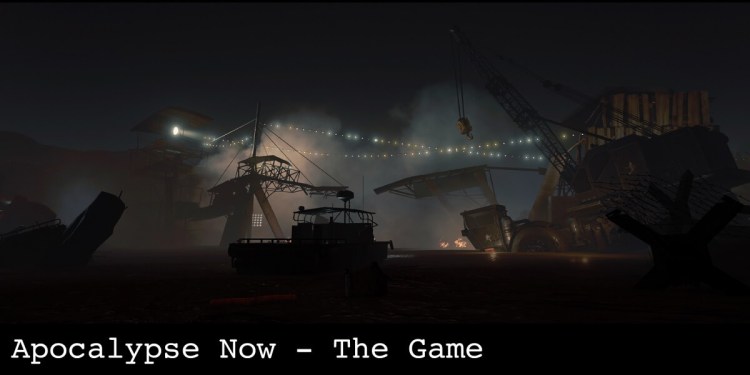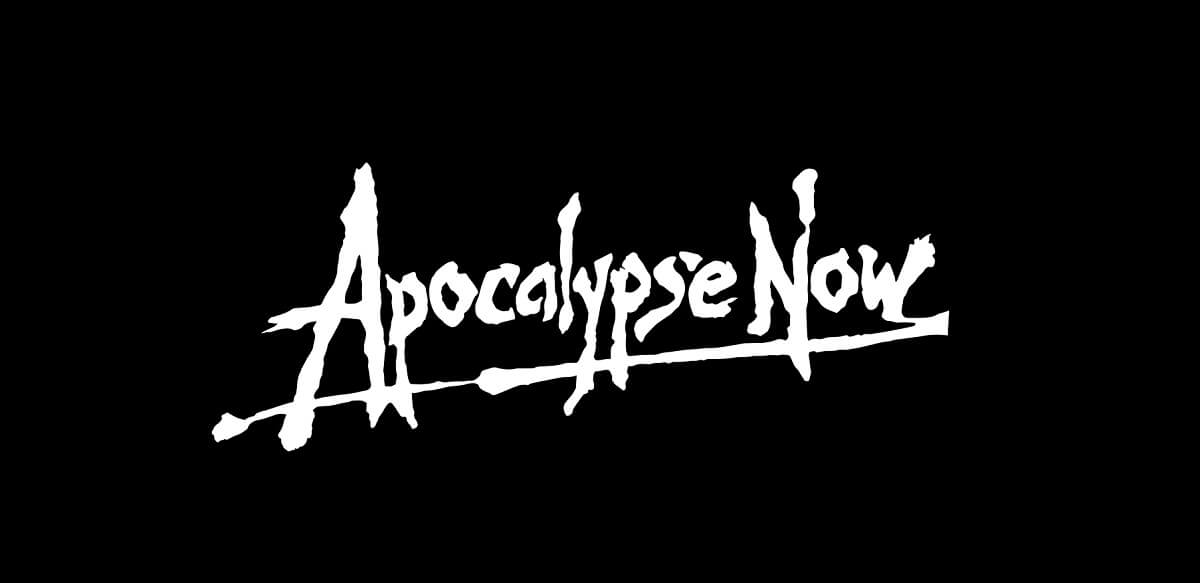
Above: Apocalypse Now is Francis Ford Coppola’s epic war film from 1979.
Liberty: I don’t think it will be anything like a Call of Duty game. That we can control just by the amount of machines that work in the world and how lethal the world is. I don’t necessarily think it’ll be like Resident Evil 7, where you feel like you’re under constant threat of death, but we envision it as an immersive first-person experience. Resources will be limited. Things like food, water, sleep, those could very well play a part in how effective you are. Tactics and player skill are going to be important.
Again, this is something I really want to bring forward to players and set up a system that allows us to perfect the game over time. I want to make sure we’re doing it the right way. But my vision currently is that it’s going to be somewhere between — maybe a little closer to Resident Evil 7 in terms of gameplay, resource scarcity, ammunition scarcity, weapon scarcity, that sort of thing. Vietnam in 1969 was a very dangerous place, particular as you got away from American encampments. It should feel uncomfortable pretty much all the time. To be true to the film, it can’t be a run-and-gun game anywhere.
We will have one of the best FPS designers and architects working on this. It has to feel like a very precise shooter — but if you played a really good shooter that has fewer bullets and a different damage model. You can’t just go in thinking, “oh, it’s just a flesh wound.” That probably doesn’t make sense here.
Do you remember Bushido Blade on the PlayStation? It was published by Square, and it was very dramatic for the time. It was the first fighting game where you basically had the potential to do one-hit kills. The fight could be over in a second of engagement. People liked it. It was rather niche, so I’m not saying we’d go to that extreme, but I do think greater lethality and being more cautious and prudent in your approach to overcoming challenges is going to be the order of the day in Apocalypse.
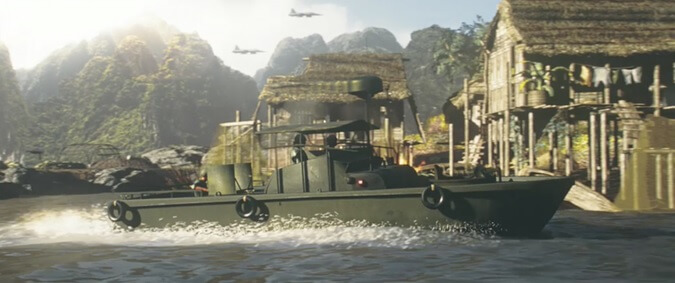
Above: The river patrol boat from Apocalypse Now
GamesBeat: The movie had a very strong narrative. Is the game going to follow that or do something different?
Liberty: This is something that will depend on our ultimate budget. We should have a fairly strong narrative component. There’s going to be a critical path, and along the way — again, depending on scale — there will be side content, a great deal of which may be procedural. We may have a procedural [jungle] with variability in terms of enemy encampments. That could mean you’d come across random encounters that vary from playthrough to playthrough. You might see a small VC patrol escorting a captured American POW, and you can choose to engage or not. We want a lot of player choice and player impact on the story.
I think setting up procedural systems is going to be the foundation on which we build. But we will have a narrative spine. The fidelity of that narrative element depends on scope. I’m comfortable scoping based on my RPG experience. I have a pretty good idea of what it costs to do a few thousand lines of voice-over as opposed to tens of thousands of lines. Scope and cost definitely scale.
GamesBeat: You could still get Martin Sheen.
Liberty: He’s around. I still love his voice. I don’t know that he’d want to. That’s not something we’re throwing in as a stretch goal [laughs]. Maybe we’d approach him in some way. I don’t know if he’d want to reprise the role of Willard. His voice has changed. I’d love to have his involvement, but something tells me he doesn’t come cheap.
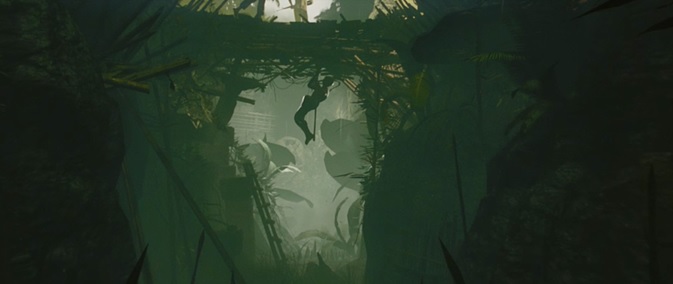
Above: Apocalypse Now the game will come out in 2020.
GamesBeat: Have there been games in the genre or in the setting that you’ve thought were interesting to compare?
Liberty: There have been a few tabletop games. There was a Neo Geo game I remember enjoying. But in terms of immersion — I don’t have any that have done what we hope to do. Not quite yet. You could argue that there have been elements in Metal Gear that touched on aspects of the time period but not really. That’s such a different and strange universe in comparison to Apocalypse.
GamesBeat: Do you know what parts of the movie you hope to recreate?
Liberty: Ideally, pretty much all of the set pieces will be there. You could argue that Saigon could be very limited because it’s just a starting point for the narrative elements. But ideally, we get to do them all.
GamesBeat: Including the helicopter assault?
Liberty: Yeah. Again, all of that is scalable and very much budget-dependent. Whether or not we want people to be [Captain Benjamin] Willard [the main character, played by Martin Sheen in the film]as a helicopter gunner, or — in a pipe dream where we’re unbelievably successful — we could add surfing. There are lots of things that would be true to the movie that would be fun to have, even if I don’t think we need to have them.
We’ll certainly prioritize the core experience. It has to be a solid FPS. We have to have great procedural systems. We’ll need a narrative layer. We’ll figure out exactly how we want to improve the existing tool set. We’ve already identified areas where we need to improve the dialogue editor, just for a minimal narrative.
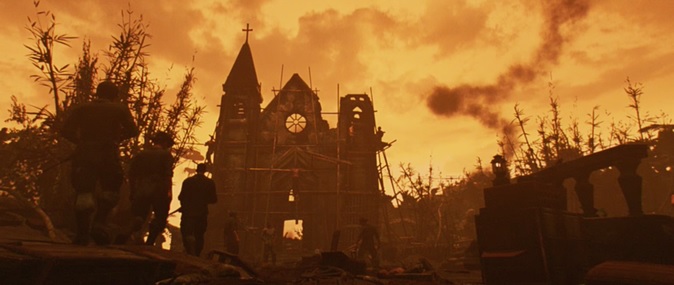
Above: The church scene in Apocalypse Now brought forth a lot of apocalyptic religious imagery.
GamesBeat: You might want to set people straight on what the ending is all about.
Liberty: The beauty of this is that your ending is going to be different, most likely. It could be very different. If we do it right, we want people to be able to — to give them tremendous freedom. This is something we’ve talked about. If at all possible, I’d love for you to be able to be entirely pacifistic or a complete reprobate. Maybe you want to go around and kill everything. That’s going to be harder to pull off in the world if we still want this world to make sense, but it was an interesting design challenge on New Vegas. There are ways of doing it. But it’s going to be harder in Apocalypse.
GamesBeat: The Kickstarter launches tomorrow?
Liberty: That’s the plan. I’m very curious myself to see how the world reacts to this. There’s no precedent for it. It could be huge. It could be anywhere on the map. We won’t know until we do it.
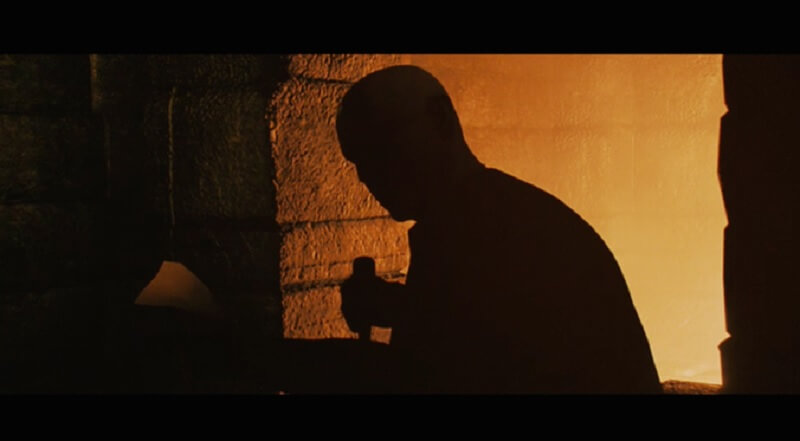
Above: Scene from the Apocalypse Now video game. The Horror. The Horror.
VentureBeat's mission is to be a digital town square for technical decision-makers to gain knowledge about transformative enterprise technology and transact. Learn More
